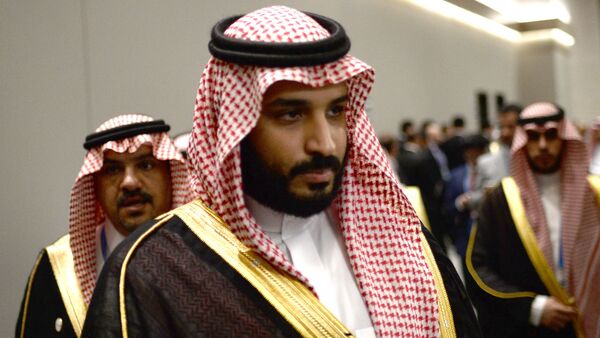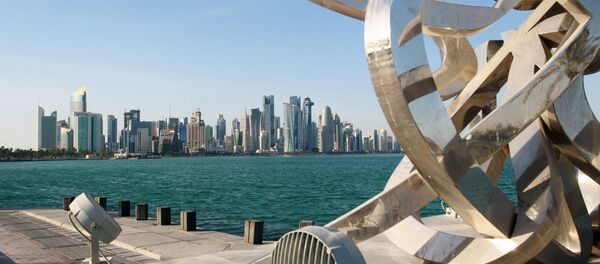WASHINGTON (Sputnik) — Saudi efforts to force Qatar to abandon support for terror groups is driven by Riyadh’s fear of the Muslim Brotherhood, former adviser to the US Senate Republican leadership Jim Jatras told Sputnik.
"What the Saudis object to is, in part Qatari support for the Muslim Brotherhood, a group Riyadh also helped for more than half a century before finally withdrawing their support with the Brothers’ rise to power in Egypt in 2012," Jatras said.
Jatras, a former US foreign service officer, also noted that for all its political extremism, the Muslim Brotherhood had never been listed by the US government as a terrorist organization.
"The Saudis’ main objection to the Brothers isn’t their radicalism — Riyadh happily supports far worse in many countries — but their populism and perceived threat to the royal pretensions of the House of al-Saud," he stated.
The United States and Israeli both backed the Saudis even though they were the world’s state sponsor of terrorism, both in the "hard" form of money and arms and the "softer" form of Wahhabist ideology, Jatras explained.
Yet, the United States and Israel "blame all the ills of the Middle East and the world" on Qatar, he said.
It remained to be seen if Riyadh could force Qatar to heel in short order, Jatras argued.
"With mediation efforts by Oman, Kuwait, and other countries, Qatar may seek to appease it more powerful neighbor by reining in al-Jazeera, expelling Muslim Brotherhood leaders, and cutting off dialogue with Tehran," he stated.
On the other hand, the Qataris may decide to stand their ground, Jatras acknowledged.
"Doha is not without supporters. German Foreign Minister Sigmar Gabriel blamed the United States (and by extension, the Saudis) for the crisis, denouncing the ‘Trumpization’ of relations in the Gulf region," he said.
"Turkey, which is favorable to the Muslim Brotherhood, has a base in Qatar, and the Turkish parliament is fast-tracking a bill to deploy forces there… Turkey, while a NATO ally, is increasingly estranged from the US, largely over US support for the Syrian Kurds," he said.
Turkey and Iran, together with Russia, are participants in the Astana process de-escalation zones acceptable to Damascus but at odds with Riyadh and Washington, Jatras concluded.





